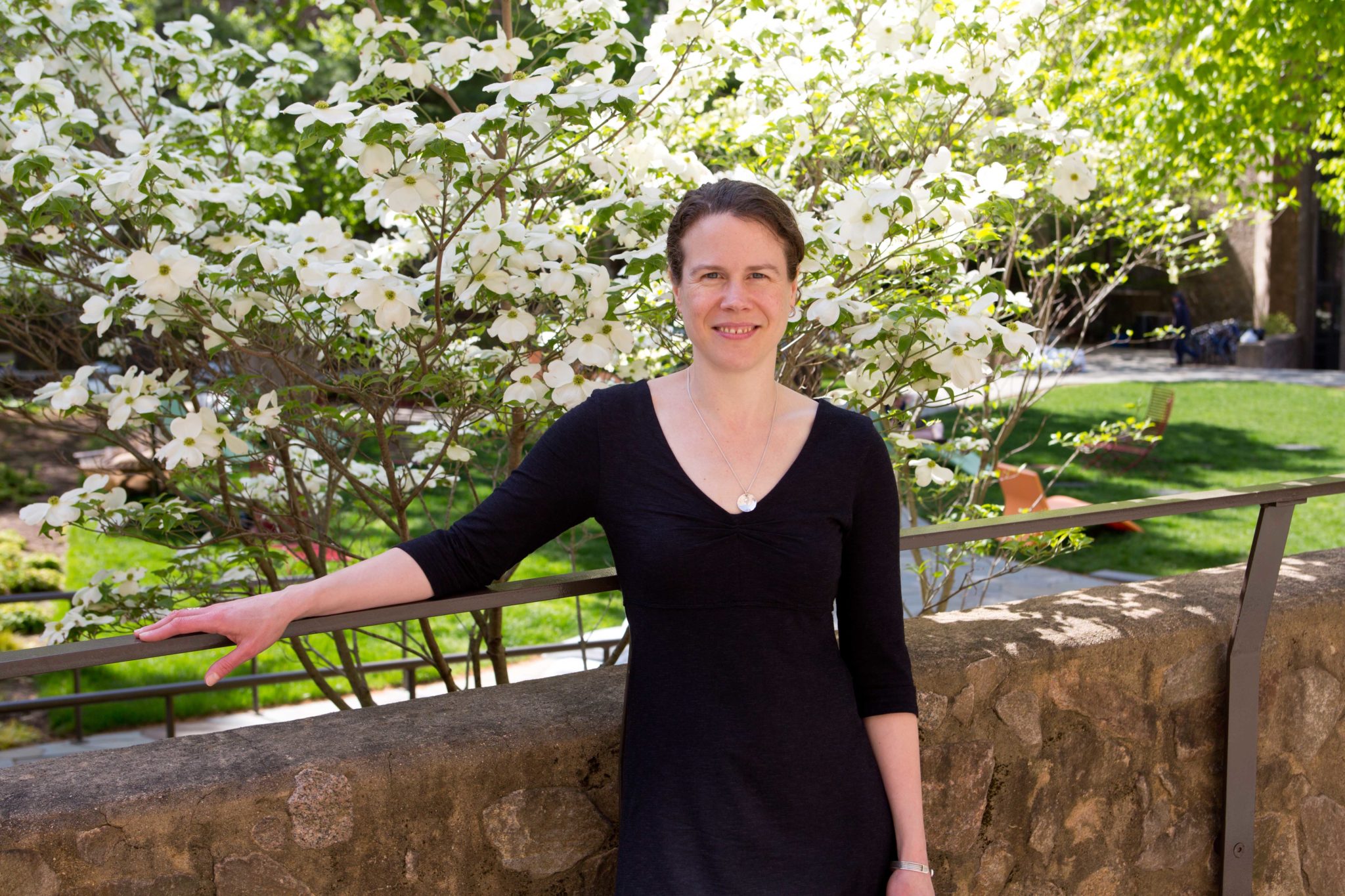
Yale Daily News
In front of a crowd of roughly 30 people, Dean of Humanities Amy Hungerford discussed the poetic philosophy of Wallace Stevens, the acclaimed poet.
The talk, titled “Wallace Stevens and the Art of the Empty Mind,” was held at the School of Management as part of Convening Yale, a series of talks presented by various professors and leaders at Yale. Hungerford began her talk by asking how one can free the mind to perceive the world in a fresh way, explaining that poet Wallace Stevens had an extraordinary ability to clear his mind to observe the world.
“[Stevens] felt that our understanding particularly of nature had been infected by ideology, religion, preconceived notions, all sorts of thought that came before him,” she said.
Hungerford noted that Stevens found Romanticism, a prominent literary style from before his time, restricting. She defined the romantic pathetic fallacy as mistakenly “thinking that nature reflects your feelings.”
Hungerford read poems from Stevens as well as older Romantic poet John Keats and compared the two to further explain Stevens’s poetic philosophy. The later poet strayed away from Romanticism and into Modernism, which sought to break from previous styles of poetry. Hungerford read out parts from Keats’ “Ode on a Grecian Urn” and emphasized the repetition of the word “happy.”
“I think that Stevens picks up on the fragility of Keats’s efforts,” she said. “When you have to repeat yourself that many times, that is effort. When you repeat the word, you are only left with the husk of sound.”
According to Hungerford, Stevens was not satisfied by the Romantic ideas of death and the passage of time embodied in Keats’ poetry. Hungerford explained that through his poetry, Stevens desired to see the world in a new way and explored “how the imagination works once you’ve cleared the mind.”
In addition, Hungerford highlighted some of Stevens’ other influences, such as the artist Paul Cézanne and the color blue, “a great color of imagination.”
Hungerford wrapped up her talk by reading Stevens’ “Sunday Morning,” which opens with an image of a woman relaxing outside instead of attending church. Hungerford described the painterly aesthetic of the poem’s language and how it embodied Stevens’ poetic philosophy of rejecting preconceived notions.
“Stevens rejects the redemptive resurrection story implied by a Sunday morning and instead pushes all the beauty with language and the visual arts,” she said.
Following the talk, Hungerford answered questions from the audience. She told audience members that she hopes that the takeaway from her lecture will be that “thinking in poetry is a powerful and [Stevens] wields it for great effect.”
Susie Jin SOM ’20, who came to the event to explore departments outside of the School of Management, found it interesting to learn about poems in the United States as an international student.
“It was interesting to explore what knowledge is out there,” she said. “I think it’s a great lecture. … It’s not something you learn in SOM every day. It’s very different from business, so it’s very refreshing to attend this kind of lecture.”
The next talk in the Convening Yale series will be a conversation with Professor Amy Wrzesniewski and writer Emily Esfahani Smith.
Claire Lee | claire.s.lee@yale.edu







